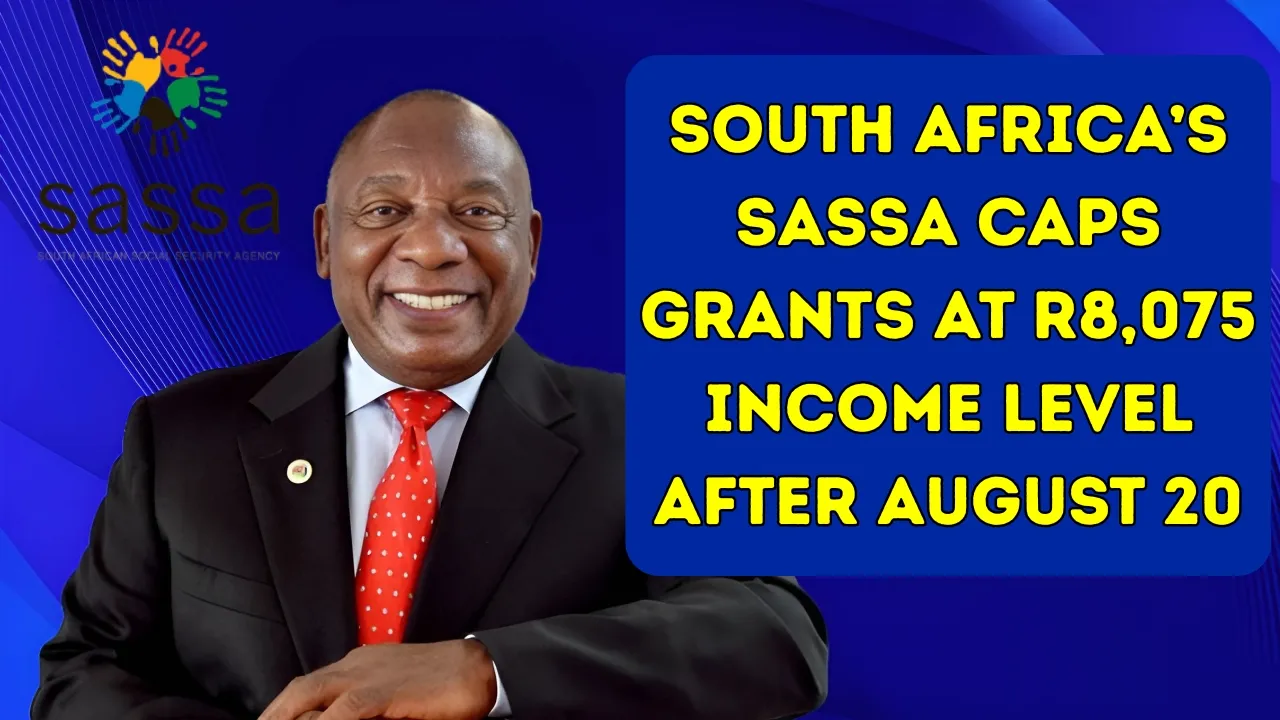The South African Social Security Agency (SASSA) has made a critical policy decision that impacts millions of grant holders across the country. Starting August 20, 2025, social assistance grants will be capped for individuals earning more than R8,075 a month, marking the introduction of a rigid means test meant to restrict aid to those with dire financial constraints.
New Income Ceiling Aims to Preserve Grant Stability
This financial cap marks the gradual shift of SASSA’s policy, aimed at relieving the burden of limited resources while targeting the more vulnerable demographics of South Africa. The assistance cap of R8,075 is aimed at balancing sufficiency of aid with the long-term sustainability of the grant program.
“Social grants should be allocated to the right people at the right time,” SASSA CEO Nomvula Radebe said during the announcement. “This allocation of funds ensures that assistance is available for families that are struggling to make ends meet.”
Verification Process and Documentation Requirements
SASSA has made it clear that the policies set forth are strictly for the new income thresholds. All existing grant beneficiaries must provide new income documents to SASSA by August 20 for them to retain their benefits. These documents include:
Mandatory Documentation for Continued Eligibility
To complete the verification process, current bank statements dated within the last three months, employment or pension income verification, and a signed declaration of the total income of all the members of the household is required. If the individual is self-employed, a tax assessment is needed as well.
To meet the growing demand, SASSA offices are extending their hours, and have hired extra staff to streamline the verification process. To further alleviate congestion at the offices, online submission methods have been improved.
Exceptions and Special Considerations
In light of the set policies, the agency has also set out some policies that go into consideration of some people that might be regarded as outliers. Families that have disabled members and dependent children are seen to bear great financial burden. These families are therefore granted leniency to qualify for higher income exemptions.
Care Dependency Grant and Disability Grant recipients will go through a different evaluation process that looks at care and medical expenses related to caregiving for cost evaluation to establish whether they qualify under the new rules.
Impact on Different Grant Categories
All SASSA grants will be influenced by the income threshold differently. Different approaches will be used within different benefit categories.
Old Age Pension and Disability Grants
Income threshold bioethics for the recipients of the Old Age Pension will take into account the rate of depletion of the retirement funds. Likewise, Disability Grant recipients will be biometrically evaluated through a targeted evaluation that includes his/her disability expenses.
Child Support and Foster Care Grants
In evaluation of applicants for the Child Support Grant, the threshold is tested against the income of the primary caregiver, however, Foster Care Grant evaluations will disregard the income of the foster parent that is not related to foster care.
The agency emphasizes that the adjustment is intended to fortify the social security system instead of diminishing support, with funds repurposed to boost the total grant amounts for eligible recipients during subsequent budget proposals.
